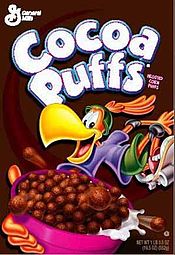
29 Mar Spring Sunday: The Elitism of Food

We all have our dirty little secrets. My friend Amy was dismayed when she got the notice from her son’s elementary school teacher: she was supposed to bring in her old cereal boxes for an art project. “What? I don’t want everyone at school to know what kind of cereal we eat at home!” she wailed.
I know what she means. There is a lot of social and cultural pressure when it comes to food these days. It used to be a pretty personal thing, what’s in our cupboards and pantries and refrigerators. Now I glance around nervously when I’m in line at the City Market or Clark’s. No, maybe the strawberries aren’t organic, or I got the generic brand of rice. I can’t wait for the good old days of summer when we can hit the Farmers Markets and pat ourselves on the backs when we bring home a beautiful $6 bouquet of carrots and some local grass-fed lamb, guilt free. When we can pick up our CSA deliveries and Google a thousand different recipes for kale, and pretend we’re all as healthy as Gwyneth Paltrow.
Every trip to the grocery store is like a game. It’s a complex balancing act between what’s organic, healthy, natural or local, and what we can afford. I pay six bucks or more for a half-gallon of Horizon organic milk, but I need to buy a couple of loaves of inexpensive bread for sandwiches for the next week or two. Then I come home and read Huffington Post articles about Horizon violating the organic standards—not happy cows—and some kind of yoga mat material that gets used to keep cheap bread “fresh.” It feels like a lose-lose scenario, every time.
We live in a town of foodies, and the elitism of food here can be overwhelming. There was a scolding comment on the Bountiful Baskets website a few weeks ago. (Bountiful Baskets is a sort of winter co-op, delivering $15 baskets of fruit and vegetables and $25 baskets of organic fruit and vegetables.) The commenter was upset that the food was not locally sourced or “sustainable,” that it wasn’t a CSA or a true cooperative model, and on and on. Really? We’re talking fruits and vegetables, not a 20-oz diet Pepsi. Not that soda has escaped local scorn—I’m sure we all remember the tax proposed on soda last year.
I’m not a soda drinker, and I do try to buy the best things I can afford—what’s organic, what’s grown or raised here, what’s non-hydrogenated, without corn syrup, and without too many additives or ingredients I can’t pronounce and I’m too scared to Google. But those are my choices. And I don’t think we should judge other people so harshly for their personal decisions they make about food, especially because consumerism is intimately related to economics. We all try to do the best we can. If you are able to support what you like to see on the shelves and at the markets with your money, that’s great. If you want to inform or educate people about food choices, that’s great, too. But remember that there’s a fine line between education and judgment, and let’s stop the food shaming and the grocery guilt. Because if Amy wants to eat Cocoa Puffs in the morning, I say let her eat Cocoa Puffs. We all have our dirty little secrets, our less-than-perfect food or life choices, and I believe we’re entitled to keep them in the cupboard.


Sorry, the comment form is closed at this time.